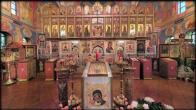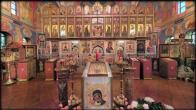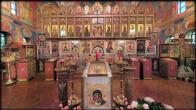2025.07.01. The Gospel of John. Discussions with Metropolitan Jonah (Paffhausen). Part 2
2025.07.01. The Gospel of John. Discussions with Metropolitan Jonah (Paffhausen). Part 2
Subscribe: https://youtube.com/StJohnDC?sub_confirmation=1
The Gospel of John, Part 2
John 1:1-5
Talk by Metropolitan Jonah (Paffhausen)
July 1, 2025
Description:
Metropolitan Jonah discusses the first five verses of the Gospel of John, providing a broad theological introduction. Topics include:
(1) The Gospel of John is the "Theological Gospel", one of the most important theological texts in the New Testament. It deals primarily with the Doctrine of the Holy Trinity.
(2) Jesus preaches the Holy Trinity in the context of the tensions of His day between the multipersonal conception of God of the old First Temple Hebrew religion (God Almighty, Yahweh His Son, and the Holy Spirit/Wisdom), versus the unitary monotheism of the Deuteronomic reforms, which became Rabinninc/Talmudic Judaism, as represented by the Sadducees and (with some differences) by the sect of the Pharisees. Jesus takes up the multipersonal aspect of God over against Judaism --- if you don't have the Son, you don't have the Father either, i.e., you don't know God;
(3) A discussion of the Greek words for "with God" of John 1:1-5 and their likely translation from the Hebrew / Aramaic "belonging to God or of God". These verses teach the Doctrine of the Trinity: that the Son of God (the Word / Logos) has His source in God but is not a creation, but divine, having the same nature as God, coming forth from God outside of time;
(4) John refutes the Gnostics, stating that everything was made through the Divine Logos. The Gnostics, heretically believing creation to be evil, taught that the Creator was also evil and therefore not divine;
(5) Later the Church would battle Arianism, which stated that the Logos came forth in time and therefore was a creature, not having the same nature as the Father. John powerfully provides the refutation of Arianism: that in God (who is the ultimate source) was the Logos, Divine was the Logos, Coeternal with the Father, and as God, Creator. This is in no way inconsistent with the incarnation of the Logos, which occurred providentially in time without compromising His Divinity;
(6) Logos Christology and Light Christology.









